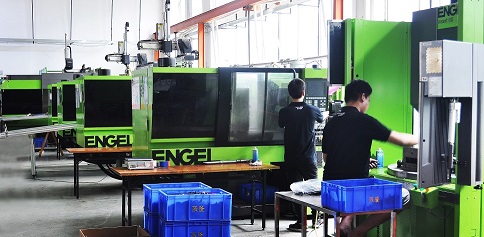Advancements in Manufacturing: Unraveling the Power of 2K Injection Molding!

Introduction
In today’s fast-paced industrial landscape, manufacturing processes have witnessed significant technological advancements to cater to the ever-growing demands of efficiency and precision. Among these, 2K injection molding has emerged as a revolutionary technique, enabling the production of complex and diverse products with exceptional quality. This article explores the concept and benefits of 2K injection molding, shedding light on its applications, advantages, and potential future developments.
Understanding 2K Injection Molding
2K injection mould or two-shot molding, is an innovative manufacturing process combining two different materials or colors into a single part. This technique involves the use of a specialized 2K injection molding machine equipped with two separate injection units. Each unit injects a distinct material or color into specific mold sections. The process allows for intricate designs and seamless integration of dissimilar materials, opening up many possibilities in product development.
The 2K Injection Molding Process
The 2K molding process begins with the design of the mold. The mold is typically divided into two or more cavities, each corresponding to the materials or colors used in the final product. During the molding process, the first material is injected into the mold’s primary cavity, forming the product’s initial layer.
Once the first material has solidified, the mold is rotated or indexed to align the second cavity with the secondary injection unit. The second material, which may be a different plastic, elastomer, or metal insert, is injected into the designated cavity. The two materials chemically bond during the over-molding process, creating a unified component.
Applications of 2K Injection molding across various industries and applications
The versatility of 2K molding has led to its adoption across various industries and applications. Some notable applications include:
Automotive Industry: 2K injection molding is extensively used in the automotive sector to manufacture complex interior and exterior components, such as multi-color dashboard panels, shift knobs with integrated buttons, and soft-touch grips.
Consumer Electronics: The process finds application in the production of consumer electronics, offering seamless integration of buttons, grips, and seals with different colors and materials for enhanced aesthetics and functionality.
Medical Devices: Medical equipment often requires components with soft-touch features and ergonomic designs. 2k mold allows for creation of intricate medical devices, including handles, grips, and sealing elements.
2k mold allows for creation of intricate medical devices, including handles, grips, and sealing elements.
Household Appliances: Manufacturers can create visually appealing and highly functional household appliances using 2K injection molding. This includes ergonomic kitchen utensils, stylish vacuum cleaner parts, and comfortable handles for power tools.
Benefits of 2K Injection Molding
Enhanced Product Aesthetics: 2K injection molding enables incorporating multiple colors and textures within a single part, eliminating the need for secondary painting or finishing processes. This results in visually striking products with a high-end appearance.
Improved Product Functionality: By combining different materials, manufacturers can create products with unique properties, such as soft-touch grips for improved ergonomics, anti-slip surfaces, and superior sealing capabilities.
Cost Savings: While the initial investment in 2K injection molding equipment may be higher, the process eliminates the need for additional assembly steps, reducing labor costs and assembly time.
Increased Design Flexibility: Designers can unleash their creativity with 2K injection molding, as it produces intricate and complex geometries that would be difficult or impossible to achieve with traditional molding techniques.
Future Prospects
As technology advances, 2K injection molding is poised to revolutionize the manufacturing industry further. Manufacturers will likely witness machine efficiency improvements, reduced cycle times, and expanded material compatibility. As environmental concerns grow, developing sustainable and biodegradable materials compatible with 2K injection molding could become a focal point in the industry’s evolution.
Conclusion
2K injection molding is a testament to human ingenuity and the relentless pursuit of innovation in the manufacturing sector. This process’s ability to merge different materials and colors into a seamless component has unlocked a world of possibilities for designers and engineers, enabling them to create products that excel in form and function. As the technology continues to evolve, 2K injection molding is expected to remain a vital tool in pursuing efficiency, aesthetics, and sustainability in manufacturing.
